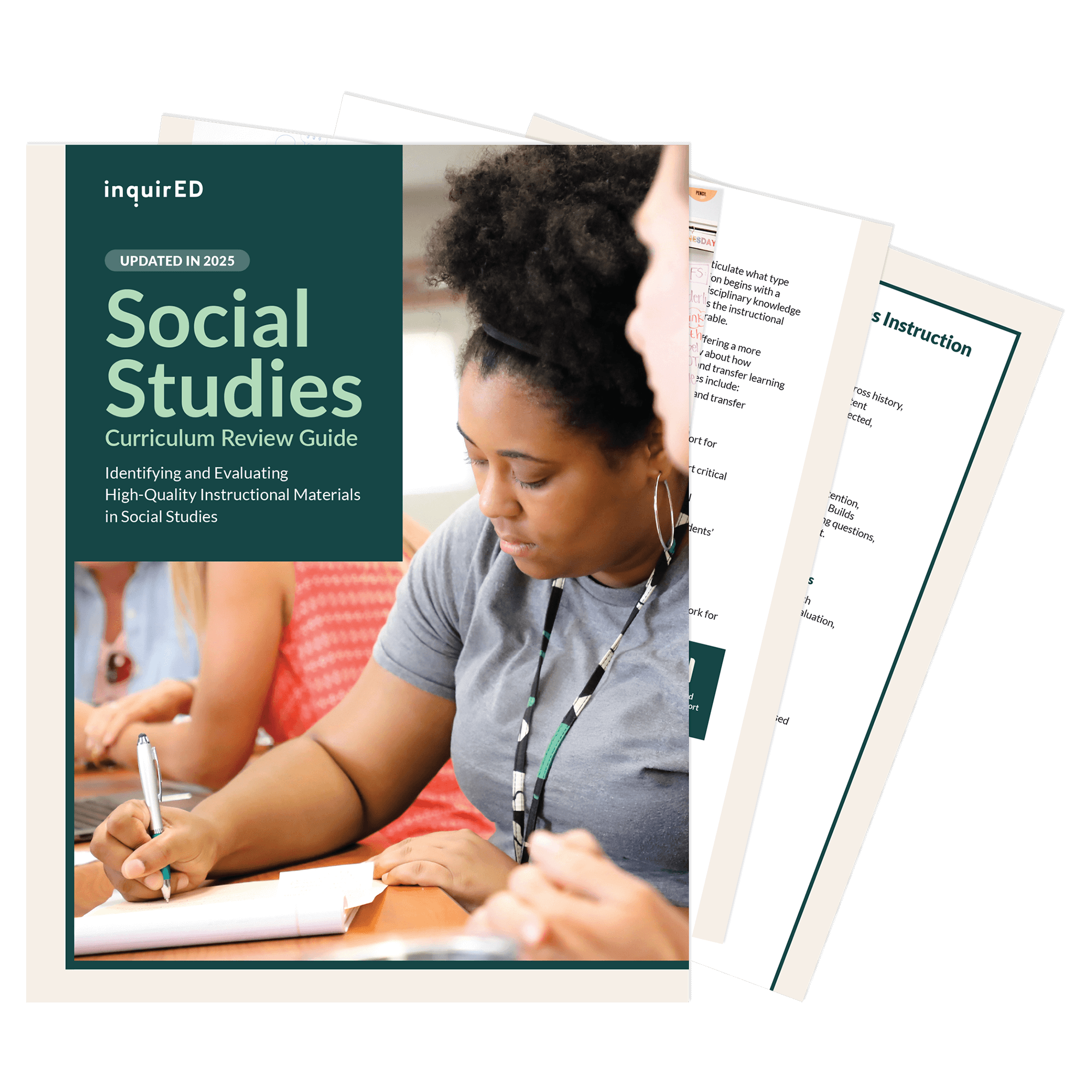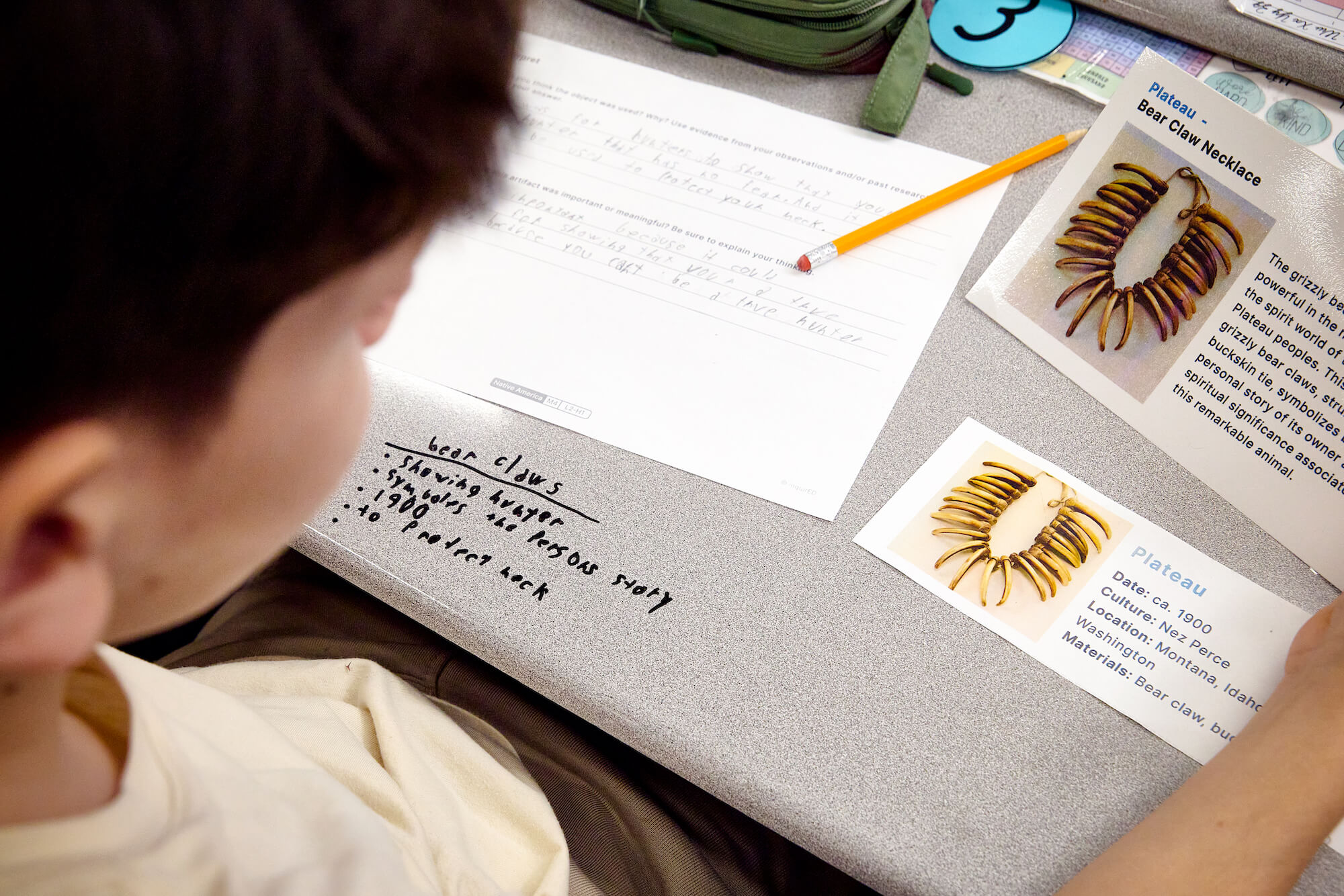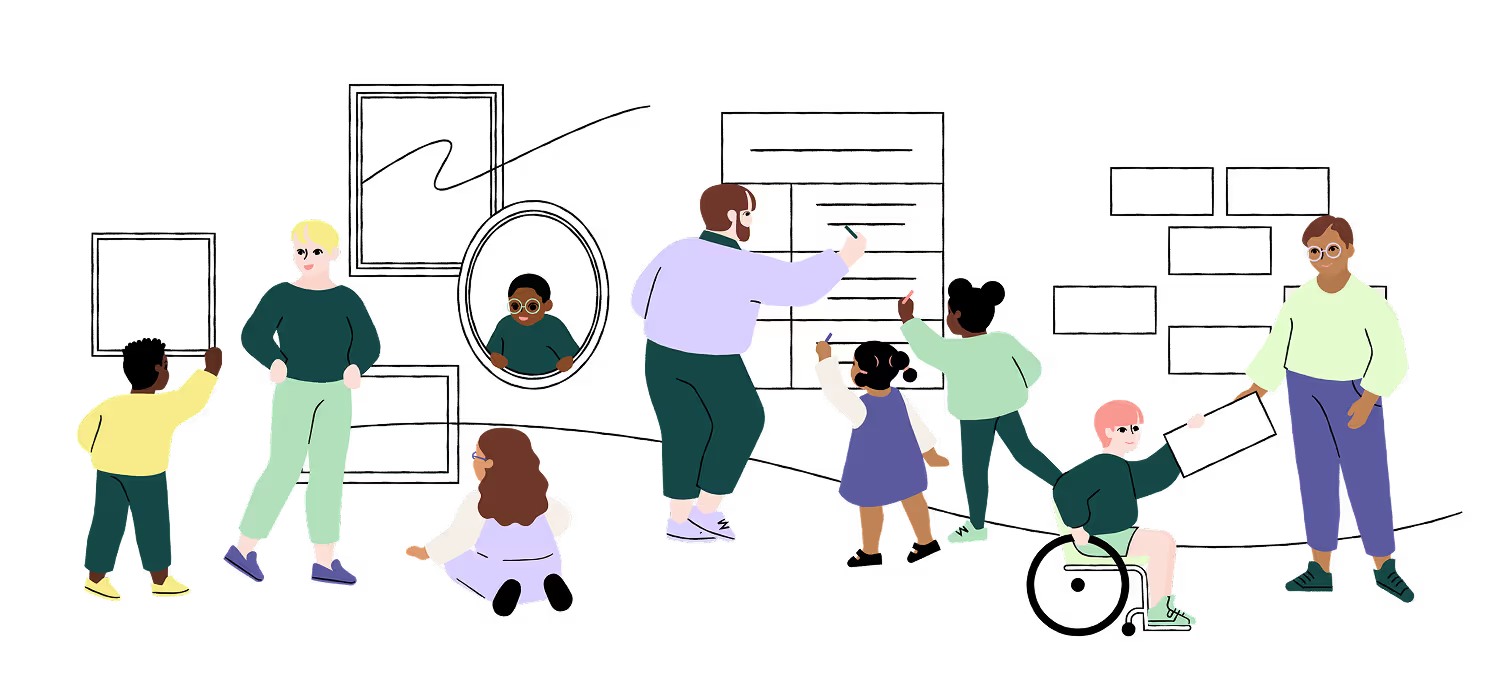How Oconomowoc made standards stick

NOTE: There is no recording for this webinar.
How Oconomowoc made standards stick

Oconomowoc Area School District adopted Inquiry Journeys to align with Wisconsin’s new social studies standards and bring consistency to instruction. The K-5 curriculum integrates rigorous content with daily opportunities to build inquiry skills, like asking meaningful questions, analyzing sources, and collaborating with peers. Five years later, teachers are seeing stronger engagement, deeper understanding, and transferable skills that support learning across all subjects.
Key Takeaways
Meeting the Moment: Aligning to Wisconsin’s New Social Studies Standards
Five years after adopting a new elementary social studies curriculum, Oconomowoc Area School District could reflect on a meaningful shift. Their goal wasn’t just to update materials—it was to find a curriculum that supported Wisconsin’s new social studies standards, which included a dual focus: rigorous content and inquiry standards. Selecting a curriculum that supported both was no small task.
At the time, instruction across schools varied widely. Some classrooms used outdated textbooks; others built units from scratch. But what stood out most wasn’t just the inconsistency—it was how often content was emphasized at the expense of inquiry, or vice versa.
Teachers needed more than new content. They needed high quality instructional materials that made inquiry an intentional part of daily instruction.
Solving for Both: Content and Inquiry Standards
As the review team explored curriculum options, a clear gap emerged: many programs covered content around history, civics, geography, and economics, but left inquiry up to individual teachers. Elizabeth Schmocker (Instructional Technology Coordinator for Oconomowoc) and her team also understood that knowing what to teach isn’t the same as knowing how students learn. One delivers information; the other helps students make meaning.
“Those inquiry standards are important,” Schmocker said. “So having those live within the social studies curriculum [was critical].”
The team was looking for a curriculum that would build inquiry skills over time—supporting students in asking meaningful questions, analyzing diverse sources, evaluating evidence, and communicating conclusions from multiple perspectives. These priorities are well-supported by research on inquiry-based learning, which highlights its role in fostering deep understanding and engagement.
Oconomowoc selected Inquiry Journeys because it met both content and inquiry standards. Each Inquiry Unit is structured to develop inquiry skills in authentic ways, giving students regular opportunities to apply them in real-world contexts.
Across Inquiry Journeys, students build these Inquiry Skills:
- 💡 Creative Problem Solving – Generate ideas and develop solutions through iteration.
- 🧠 Critical Thinking – Ask questions and draw conclusions based on evidence.
- 🗣️ Communication – Express ideas clearly and adapt to different audiences.
- 🤝 Collaboration – Work respectfully and share responsibility in teams.
- 🎯 Personal Agency – Set goals, seek feedback, and take ownership of learning.
Students take on the roles of historians, civic leaders, and economists—analyzing sources, building arguments, and proposing solutions to real-world issues. These routines encourage deeper thinking and help students connect learning to their lives.
Teachers noticed the shift. With embedded supports and ready-to-use materials, inquiry became an integral part of instruction.
“One of the things we really liked about inquirED was that learning was embedded for the teachers as they were teaching,” Schmocker reflected. Rather than starting from scratch, teachers had tools to support meaningful shifts in practice.
{{testimonial-1}}
One Question, Many Ideas: How Students Explored Innovation
Adopting Inquiry Journeys was just the first step. In Oconomowoc’s second-grade Innovation Unit, students explored the question: How can we innovate to improve the world around us?
Students investigated how innovation shapes daily life—studying historical photos, oral histories, patent drawings, and legends. To extend learning, the tech team introduced decades-old tools like rotary phones and iPods. Students rotated through stations, sparking discussion and reflection on how technology has changed over time.
Throughout the unit, students developed these Inquiry Skills by practicing and applying them.
- 💡 Creative Problem Solving: Students imagined innovations of their own.
🧠Critical Thinking: Students asked why and how technologies changed.
- 🗣️ Communication: Students shared ideas and engaged in discussion.
- 🤝 Collaboration: Students collaborated in small groups to build understanding of social studies content.
- 🎯 Personal Agency: Students followed their curiosity and took ownership of their learning.
This unit addressed standards in history, economics, civics, and geography—while connecting inquiry, literacy, and real-world relevance. Teachers saw students make cross-disciplinary connections and engage more deeply as skill-building strengthened content understanding.
{{download}}
How Inquiry Skills Transfer Across the School Day
Over the next few years, teachers started to notice the ripple effects of inquiry based learning that go beyond the social studies block—especially in literacy. “[Teachers] go into literacy now thinking, how are we having them ask questions? Our students are skilled with knowing how to do that… that impact in itself is huge,” Schmocker recounted.
Inquiry Skills like critical thinking, questioning, and analysis show up in every discipline—helping students interpret texts, construct arguments, and communicate with clarity. Through their experiences in Inquiry Journeys, students are building habits and skills that go beyond a single subject area and last beyond a single lesson.
For Schmocker and her team, this transfer is intentional. With shared language, consistent routines, and embedded support, teachers have a clear path for helping students grow—not just in social studies, but across the elementary school day.
Learn more about why inquiry in elementary social studies matters, especially in building habits that transfer across subjects.
“[Teachers] go into literacy now thinking, how are we having them ask questions? Our students are skilled with knowing how to do that… that impact in itself is huge.”
Five Years Later: Impact of a Long-Term Investment in Inquiry
When Oconomowoc set out to strengthen elementary social studies, their goal wasn’t just to adopt new materials. They wanted to bring more consistency to instruction, make learning more meaningful for students, and align with Wisconsin’s new emphasis on inquiry.
Five years later, they’re seeing the impact of that shift. Inquiry has become a shared structure across classrooms—supporting deeper learning, skill development, and student engagement.
It shows up in what students do each day: asking thoughtful questions, working together to solve problems, and taking ownership of their learning. And it’s reflected in teacher practice, too—guided by shared routines, supportive materials, and opportunities to grow their own inquiry approach.
For Oconomowoc, inquiry has become a foundation for helping students think critically, act responsibly, and stay engaged in their learning—today and into the future.
Curious how an inquiry-based approach could support your district’s goals? Inquiry Journeys, our K-5 social studies curriculum, could be the right fit for your district.
Resources
Keep reading
See more of this series

Review for high quality K-5 social studies materials
Our Social Studies Curriculum Review Guide is a free tool that can help guide your district's adoption process.
Start your journey
Inquiry Journeys, inquirED's K-5 social studies curriculum, engages students in inquiry-based learning, strengthens literacy skills, and supports teachers every step of the way.
“One of the things we really liked about inquirED was that learning was embedded for the teachers as they were teaching.”
Elizabeth
Instructional Technology Coordinator
“One of the things we really liked about inquirED was that learning was embedded for the teachers as they were teaching.”
Elizabeth
Instructional Technology Coordinator
inquirED supports teachers with high-quality instructional materials that make joyful, rigorous, and transferable learning possible for every student. Inkwell, our integrated core ELA and social studies elementary curriculum, brings ELA and social studies together into one coherent instructional block that builds deeper knowledge, comprehension, and literacy skills. Inquiry Journeys, our K–5 social studies curriculum, is used across the country to help students develop the deep content knowledge and inquiry skills essential for a thriving democracy,









